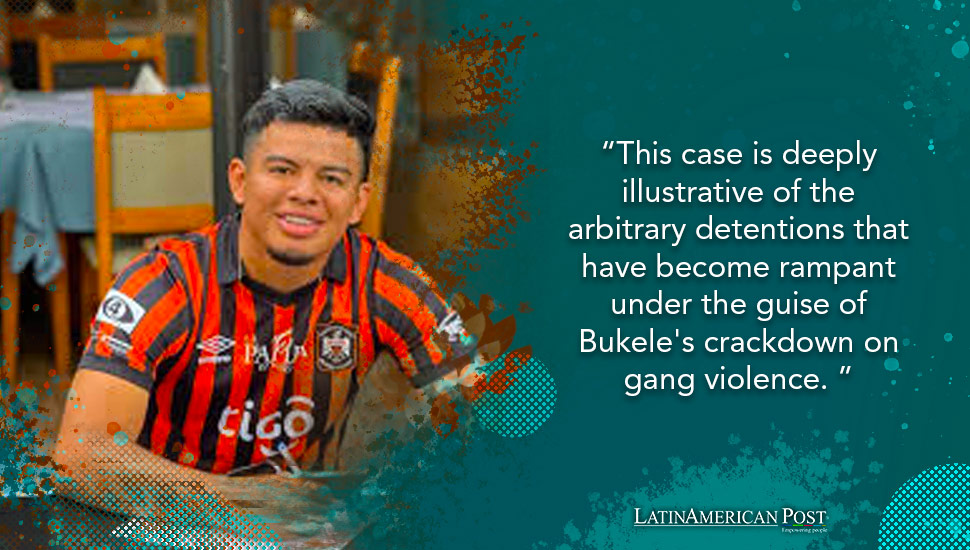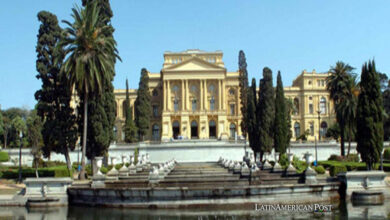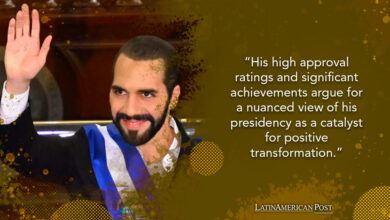El Salvador’s Selective Justice Exposes Deep Legal Flaws

The recent release of a Salvadoran soccer player’s father, detained under dubious gang affiliations and freed after a public plea, starkly illustrates the erosion of judicial independence and fair legal processes in El Salvador under President Nayib Bukele.
In a move that has stirred both relief and controversy, the father of Salvadoran soccer player Marcelo “El Chiky” Díaz was released from prison shortly after his son made a heartfelt plea on social media. This incident is not merely a story of familial relief but a troubling emblem of the erratic nature of justice in El Salvador under President Nayib Bukele’s administration. While the release is undoubtedly a moment of joy for Díaz’s family, it starkly highlights the broader, more distressing narrative of legal and human rights abuses currently unfolding in El Salvador.
The case of Díaz’s father is deeply illustrative of the arbitrary detentions that have become rampant under the guise of Bukele’s crackdown on gang violence. Initiated in March 2022 following a surge in gang-related violence, Bukele’s “state of emergency” has seen the suspension of numerous constitutional rights and the incarceration of nearly 80,000 individuals ostensibly linked to gangs. This figure represents more than 1% of the country’s population, a staggering statistic.
The crackdown, while famous for its tough-on-crime facade, has led to numerous instances of human rights violations. Reports from within the country suggest that many of those detained have little to no evidence tying them to criminal activities, and the conditions within the prisons have been described as akin to torture chambers. The hasty and often unsubstantiated arrests have not only overcrowded the prisons but have also torn apart countless families, leaving them with little recourse or visibility into the welfare of their loved ones.
Violation of Legal Principles
The swift release of Díaz’s father, following a public appeal to an increasingly authoritative leader, raises serious questions about the state of justice in El Salvador. It underscores a disturbing trend where legal outcomes can seemingly be swayed by public sentiment or personal whim rather than the rule of law. This undermines the very foundation of legal equity, suggesting that those without a public platform or direct power line are left to suffer unjustly in detention.
This practice blatantly violates the principle of equality before the law, a cornerstone of democratic societies. Furthermore, it infringes upon the right to a fair trial, a right that is suspended under the current state of emergency. The selective application of justice, as seen in the case of Díaz’s father, highlights a broader pattern of legal manipulation where transparency and accountability are alarmingly absent.
This incident in El Salvador is reflective of broader challenges across Latin America, where many nations grapple with balancing crime prevention and human rights. Leaders often face pressure to reduce crime rates, sometimes resulting in harsh policies that can overlook fundamental rights. However, the situation in El Salvador is particularly acute, demonstrating how swiftly rights can be eroded under the guise of national security.
International Response and Accountability
While President Bukele enjoys substantial popularity for his tough stance on crime, international observers and human rights organizations have voiced increasing concern. The international community has a crucial role in advocating for the restoration of due process and the rule of law in El Salvador. Foreign governments, international courts, and global human rights entities must continue to monitor the situation closely, offering both condemnation and dialogue to steer Bukele’s administration back towards a path that respects fundamental human and legal rights.
Also read: El Salvador Embraces Musk’s Starlink: Pioneering Satellite Internet Across Latin America
The release of Marcelo Díaz’s father, while relieving his family, should not be seen as a victory for justice. Instead, it serves as a potent reminder of the fragility of legal systems in the face of authoritarian governance. For true justice to prevail, it must be blind to social status, immune to public opinion, and impervious to political influence. As El Salvador continues on its current trajectory, it is imperative for both national and international advocates for justice to demand reforms that ensure fairness, transparency, and accountability in the legal system. Only through sustained and concerted efforts can the tide of arbitrary justice be turned to protect the rights of all Salvadorans.





